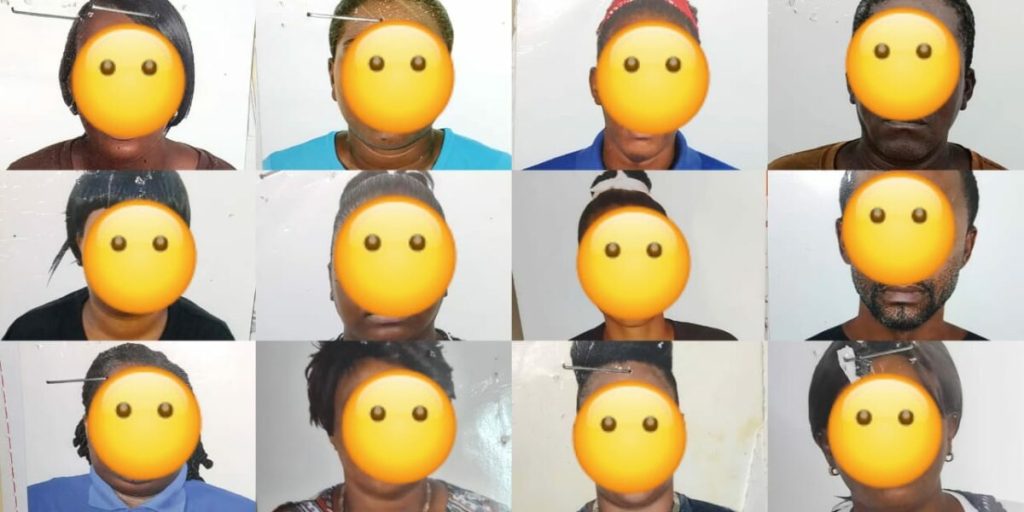The emergence of digital lending platforms has revolutionized access to credit, offering quick and convenient loans to individuals often excluded from traditional banking systems. However, this rapid growth has also brought to the forefront critical questions regarding debt recovery practices, particularly in the context of privacy and ethical considerations. The case of the “Delinquent Loans” app exemplifies this complex issue, sparking a heated public debate after it publicly shared photos of 87 alleged debtors on social media platforms like TikTok and X (formerly Twitter) in an attempt to recoup outstanding loans. This action has ignited a firestorm of controversy, raising fundamental questions about the appropriate balance between a lender’s right to recover funds and a borrower’s right to privacy and dignity.
The app’s unorthodox approach involved posting three separate videos on TikTok, each displaying images of individuals purportedly owing money. The videos, accompanied by the caption “Please settle your loans,” were intended as a public shaming tactic to pressure debtors into repayment. The videos quickly gained traction, going viral and attracting a diverse range of opinions from social media users. Some commentators expressed support for the app’s drastic measures, arguing that debtors should be held accountable for their financial obligations. Others vehemently condemned the public shaming, characterizing it as a violation of privacy and a potentially damaging act of defamation. This division of opinion underscored the complex ethical and legal questions surrounding debt collection practices in the digital age.
The online discourse surrounding the “Delinquent Loans” incident highlighted the diverse perspectives on debt recovery and individual rights. Some users, like King (#KingSuleiman27 on X), shared the videos with a mixture of amusement and caution, urging others to check if their photos were among those displayed. Others, like Prince Olugbade (#latmos997 on X), sarcastically suggested that the app should collect the money directly from the public viewing the videos. However, a significant portion of the online community expressed serious concerns about the legality and ethical implications of the app’s actions. FaVōuR™ (fhavourabia on X) argued that the app should be sued for defamation if there were a functioning legal system to address such violations. Agbalaka (#CroBender on X) emphasized the potential repercussions of borrowing from informal lenders, often referred to as “shylocks,” hinting at the exploitative practices that can sometimes accompany such loans. The incident served as a stark reminder of the potential risks associated with digital lending platforms and the need for greater regulatory oversight.
Beyond the immediate controversy surrounding the public shaming tactic, the incident also prompted a broader discussion about the consequences of loan defaults and the importance of financial literacy. Smiles Ebony (#smileebony on X) highlighted the potential long-term repercussions of defaulting on loans, explaining that such actions are typically reported to credit bureaus, potentially impacting an individual’s credit score and future access to credit. This comment underscored the importance of responsible borrowing and understanding the implications of failing to meet loan obligations. Emma (#Emmabest on X) raised a different concern, suggesting that some of the individuals whose photos were displayed might not even be aware of the loans, possibly due to fraud or identity theft. This comment highlighted the potential for abuse within the digital lending space and the need for robust verification and security measures to protect borrowers.
The “Delinquent Loans” incident has illuminated the urgent need for a comprehensive framework governing debt collection practices in the digital lending industry. The lack of clear regulations and ethical guidelines creates a fertile ground for potentially abusive and harmful practices. This incident underscores the necessity for robust consumer protection mechanisms to ensure that borrowers’ rights are safeguarded while also allowing lenders to recover their funds through legitimate and ethical means. A balanced approach is needed that respects both the rights of lenders and the dignity of borrowers. This requires a multifaceted approach involving legislative action, industry self-regulation, and increased public awareness about responsible borrowing and lending practices.
Moving forward, policymakers, regulators, and industry stakeholders must collaborate to establish clear guidelines for debt recovery practices in the digital lending space. These guidelines should address issues such as permissible communication methods, data privacy, and consumer protection mechanisms. In addition, increased public awareness campaigns are needed to educate borrowers about their rights and responsibilities and to promote responsible borrowing practices. The “Delinquent Loans” incident serves as a cautionary tale, highlighting the potential pitfalls of unregulated digital lending and the urgent need for a more ethical and responsible approach to debt recovery. The future of digital lending hinges on striking a balance between innovation and consumer protection, ensuring that this rapidly evolving industry benefits both borrowers and lenders while upholding fundamental rights and ethical principles.


